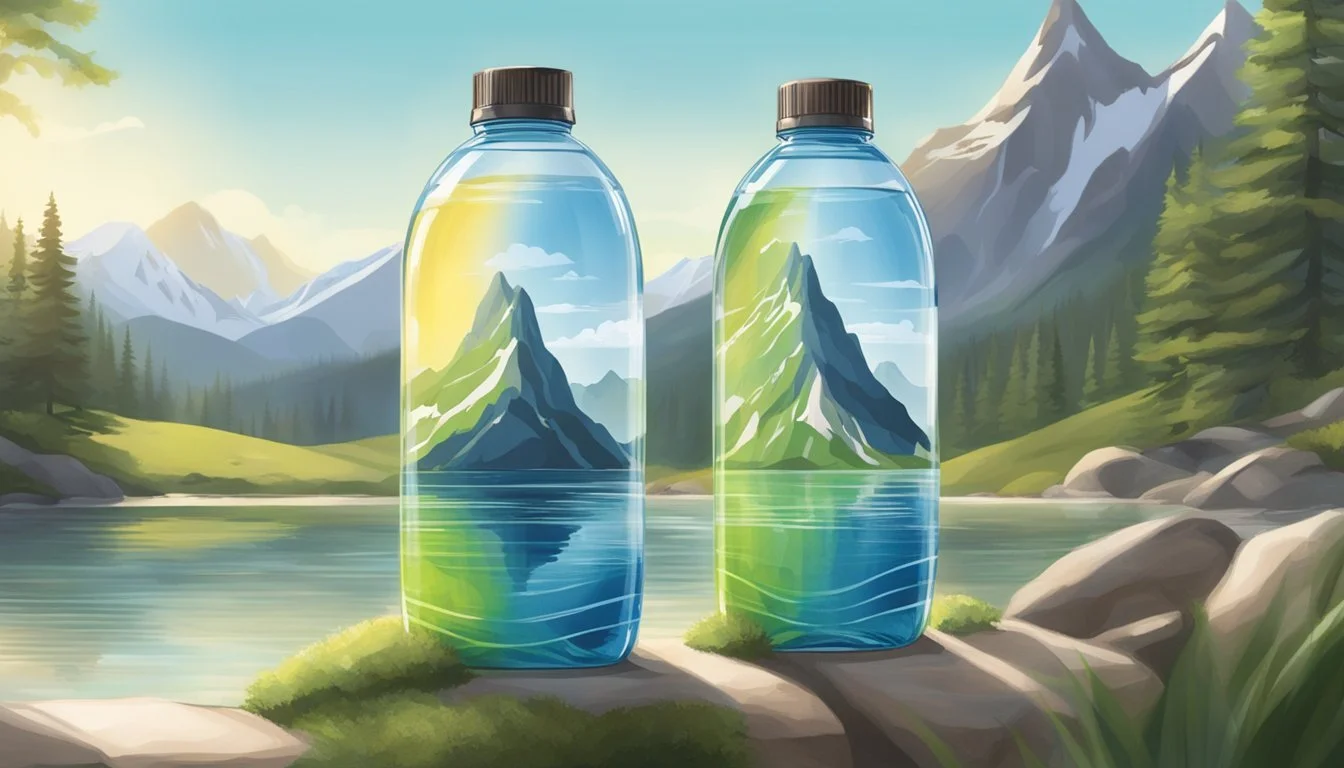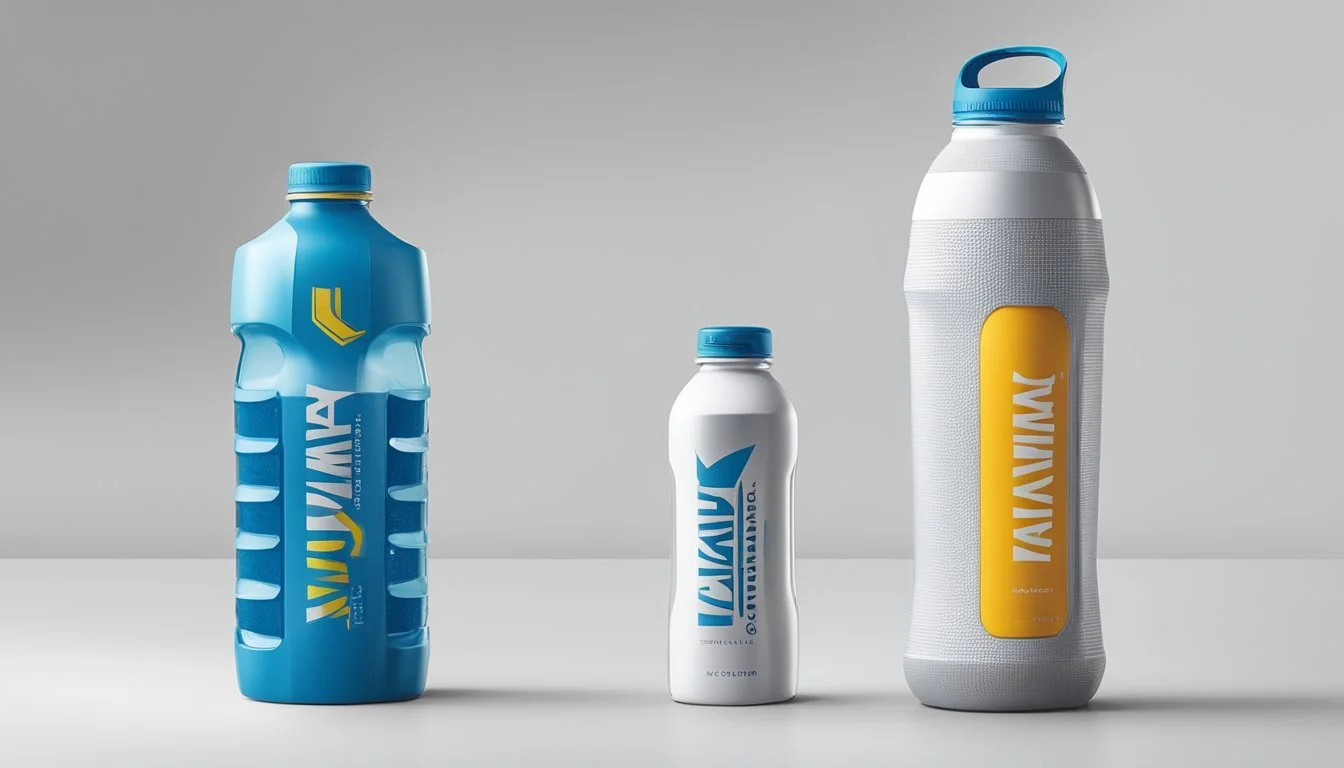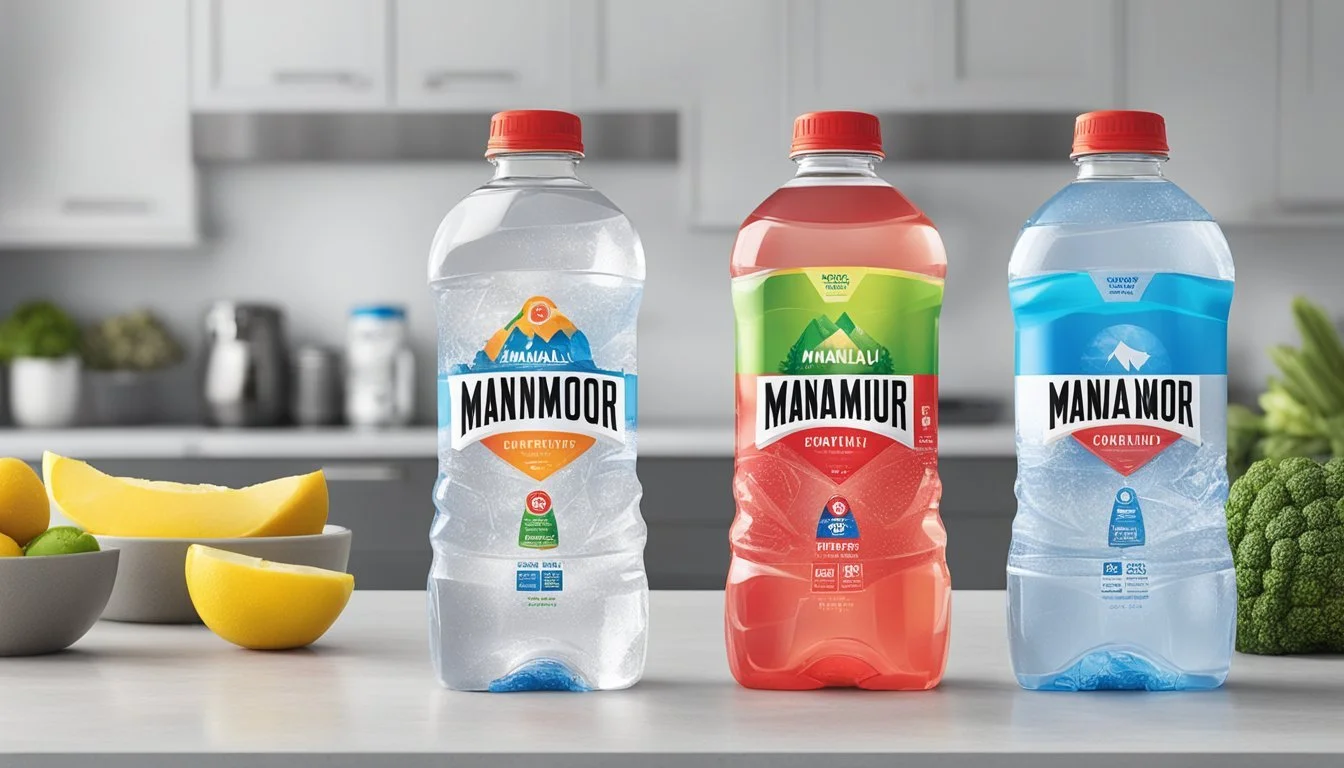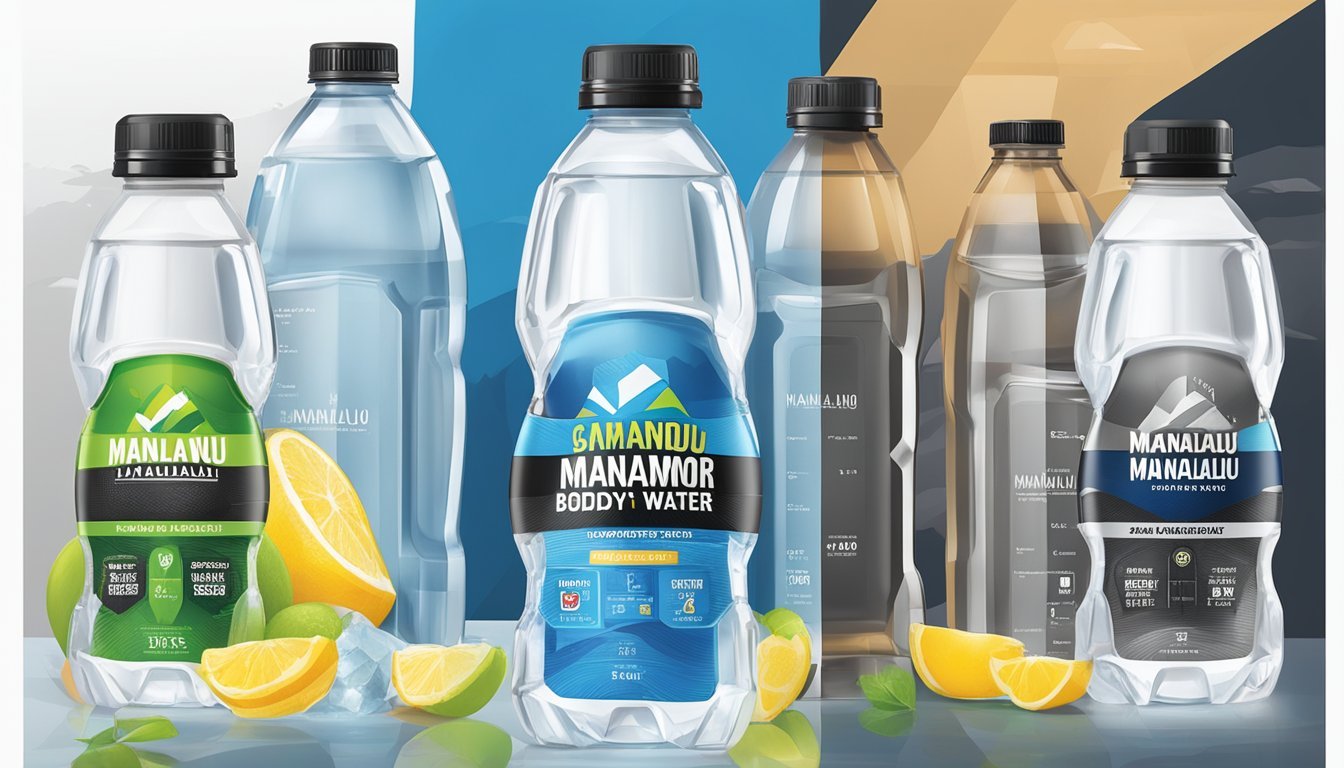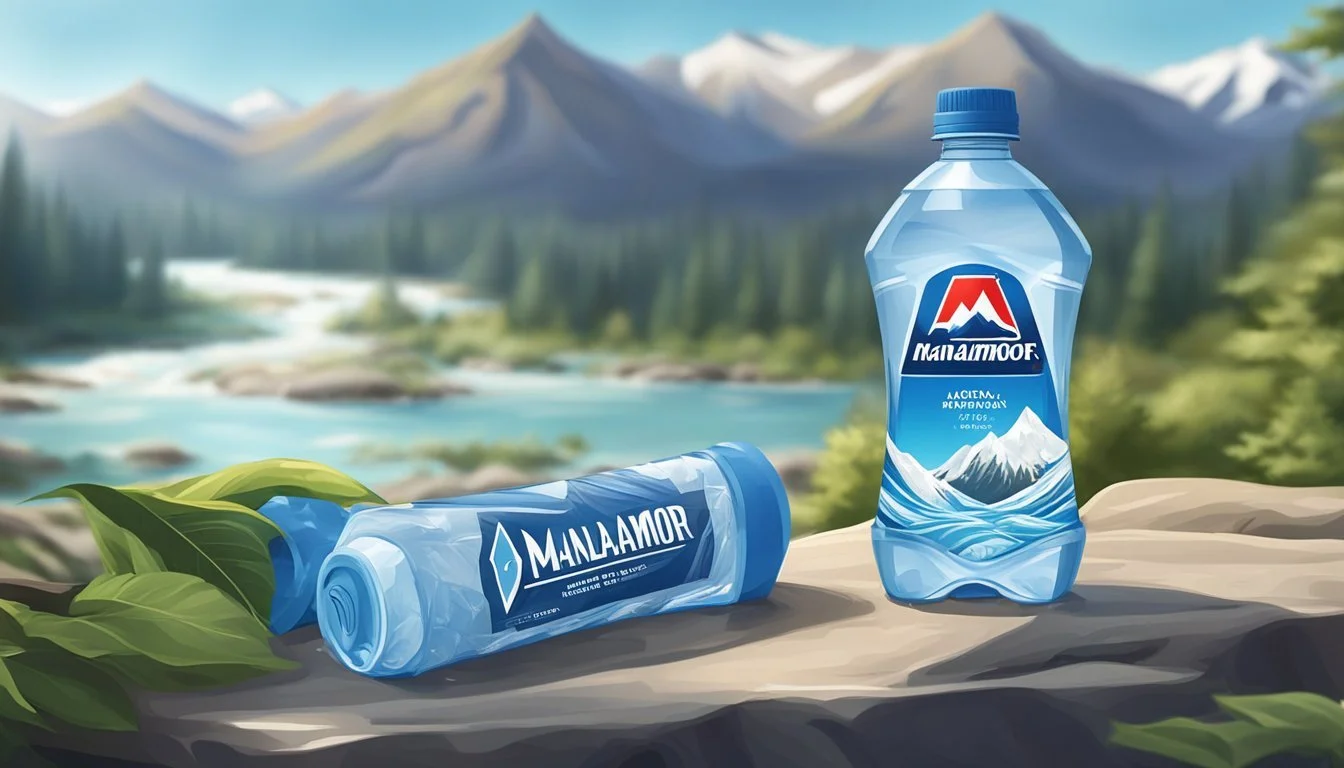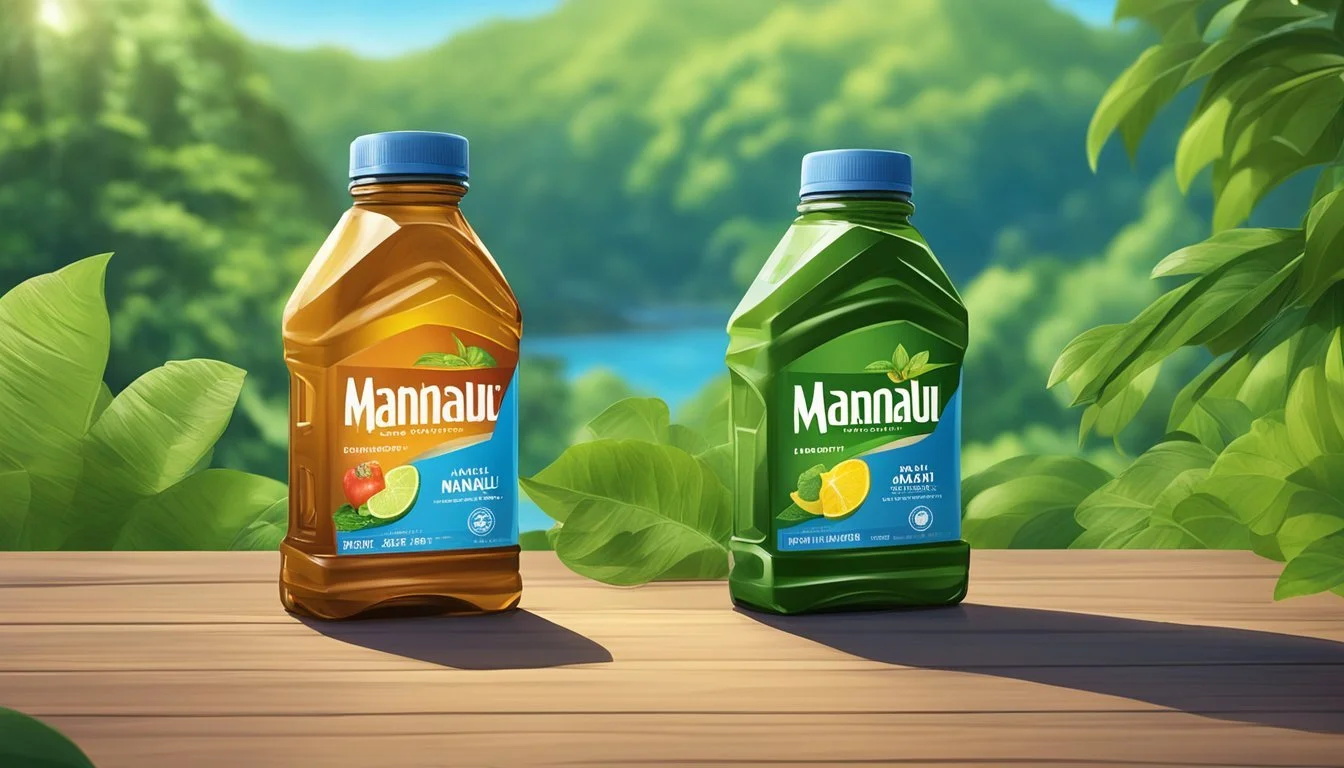Mananalu vs. BodyArmor
Comparing Bottled Water Brands
In the burgeoning market of bottled water, consumers are increasingly seeking products that align with both their health and environmental values. Mananalu, championed by Jason Momoa, offers purified water in 100 percent recyclable aluminum cans, emphasizing its mission to eliminate single-use plastics. This commitment to sustainability positions Mananalu as a unique player amid a crowded field.
On the other hand, BodyArmor, primarily known for its sports drinks, has also entered the bottled water sector, offering electrolyte-enhanced options. BodyArmor’s appeal lies in its promise of hydration and added nutrients, making it a go-to choice for athletes and fitness enthusiasts. Although both brands aim to provide pure, high-quality water, their differing approaches cater to distinct consumer needs.
For environmentally conscious individuals, Mananalu’s eco-friendly packaging is a strong selling point. For those focused on performance and sporting benefits, BodyArmor's nutrient-rich water offers a competitive edge. Choosing between Mananalu and BodyArmor depends on whether one's priority is environmental impact or enhanced hydration.
Background and Origin
Mananalu and BodyArmor have distinct origins, shaped by their founders' visions and market positioning, reflecting their commitment to sustainability and sports hydration, respectively.
Mananalu's Emergence and Vision
Mananalu was founded by Jason Momoa in 2019.
The name "Mananalu" combines Hawaiian words: "mana" (sacred spirit of life) and "nalu" (powerful wave), symbolizing a wave of change.
Momoa's mission focuses on sustainability, specifically reducing single-use plastics by packaging water in 100% recyclable aluminum bottles.
A unique aspect is the "Drink One, Remove One" initiative, which removes plastic bottles from the ocean for every bottle sold, in partnership with Repurpose Global.
BodyArmor's Market Position and Development
BodyArmor is a sports hydration brand, launched in 2011, gaining rapid popularity for its low-calorie, nutrient-rich drinks.
Endorsed by athletes, it features natural ingredients, electrolytes, and coconut water, competing directly with Gatorade.
Coca-Cola's 2018 investment significantly boosted its market reach, solidifying its presence in sports hydration.
This partnership also enabled widespread distribution, enhancing its visibility and consumer base.
Environmental Considerations
Evaluating the environmental impact of bottled water brands reveals key differences in their approaches to sustainability. The focus here is on single-use plastics' detrimental effects on oceans, the advantages of using infinitely recyclable aluminum, and the brands’ sustainable packaging solutions.
Impact of Single-Use Plastic on Oceans
Single-use plastic water bottles are a significant source of plastic waste. They often end up as ocean-bound waste, contributing to the pollution problem affecting marine life. Ocean-bound waste refers to plastic debris that, if not managed, could end up in oceans.
Plastic waste impacts not only marine animals but also the broader ecosystem. Over time, it breaks down into microplastics, which are ingested by sea creatures. This leads to serious health issues in marine life and negatively affects biodiversity in the Earth's oceans.
Mananalu, a company founded by Jason Momoa, directly addresses this by removing the equivalent of one plastic bottle from ocean-bound waste for every aluminum bottle sold. This approach significantly mitigates the environmental impact of single-use plastic water bottles.
The Role of Infinitely Recyclable Aluminum
Aluminum has the advantage of being infinitely recyclable, meaning it can be recycled repeatedly without degradation of quality.
Mananalu utilizes aluminum for their bottled water packaging to leverage this benefit. By choosing aluminum bottled water over single-use plastic, consumers support a cycle that reduces waste and promotes ongoing recycling. Unlike plastic, which can only be recycled a limited number of times before degrading, aluminum continues its life cycle almost indefinitely.
This reduces the need to produce new materials from resources, thus conserving energy and reducing carbon emissions. Additionally, aluminum recycling helps curb pollution and greenhouse gas emissions, presenting a clear environmental benefit over traditional plastic waste.
Sustainable Packaging Solutions
Sustainable packaging solutions focus on reducing single-use plastics and adopting recycled materials. Mananalu emphasizes using recycled corrugated boxes for shipping and packaging.
Such packaging solutions contribute significantly to reducing environmental impact. By utilizing recycled boxes, they lower demand for virgin materials and enhance the sustainability of their supply chain. Mananalu's commitment to eliminating single-use plastics by choosing aluminum further demonstrates an innovative approach to comprehensive sustainability.
Competing brands, like BodyArmor, need to consider similar packaging innovations to minimize their environmental footprint. Adopting sustainable materials and practices plays a crucial role in mitigating the broader impact on the environment.
Product Offerings and Features
Mananalu and BodyArmor offer distinct experiences in the bottled water market, with each brand emphasizing unique qualities and features. These factors are crucial for consumers seeking the best option for their hydration needs.
Water Source and Purification Process
Mananalu sources its water and purifies it using advanced reverse osmosis, ensuring that it is free from impurities. The water is then packaged in 100% recyclable aluminum bottles, promoting environmental sustainability.
BodyArmor offers purified water with added electrolytes for enhanced hydration. Their purification process includes reverse osmosis to remove contaminants, followed by the addition of essential minerals like calcium, magnesium, and potassium to improve taste and hydration.
Taste Profiles and Ingredients
Mananalu provides a clean, crisp taste, free from any additives. The water is solely purified and contains natural minerals that are retained during the purification process, ensuring a refreshing drinking experience. The aluminum packaging also helps maintain the water’s taste by avoiding plastic leaching.
BodyArmor's purified water is fortified with electrolytes and minerals. This results in a slightly enhanced taste compared to regular purified water. Consumers can notice a balanced flavor profile due to the presence of minerals like magnesium and calcium. Additionally, BodyArmor offers flavored options with natural flavors and no artificial sweeteners.
Health and Nutritional Benefits
Mananalu’s purified water boasts the benefit of being environmentally friendly due to its eco-conscious packaging. The water’s purity ensures no unwanted substances, making it a healthy choice. Its natural mineral content supports basic nutritional needs without any additives or artificial ingredients.
BodyArmor stands out with its infusion of electrolytes, making it particularly beneficial for athletes and active individuals. The electrolytes help replenish what’s lost in sweat, aiding in quicker recovery and better hydration. Their water is also free from artificial sweeteners, appealing to health-conscious consumers looking for a clean hydration option.
Packaging and Design
Packaging and design are crucial factors that influence consumer preference, especially when it comes to bottled water. Factors like materials used, environmental impact, and convenience features play significant roles.
Comparative Analysis of Bottle Design
Mananalu uses 100% recyclable aluminum bottles, emphasizing their commitment to environmental sustainability. Aluminum is not only infinitely recyclable but also more durable than plastic.
BodyArmor, on the other hand, typically uses plastic bottles, which pose environmental issues due to single-use plastic waste. Although plastic is lightweight and cost-effective, it is not as environmentally friendly.
The design aesthetics also differ. Mananalu’s aluminum bottles often feature sleek, minimalist designs, reflecting a modern and eco-friendly brand. BodyArmor’s plastic bottles are more colorful and designed to capture attention on the shelves but do not offer the same level of recyclability.
Convenience Features
Mananalu’s aluminum bottles are resealable and refillable, which adds to their convenience. The robust nature of aluminum makes these bottles suitable for reuse, reducing the need for single-use plastics. This feature is particularly attractive for environmentally-conscious consumers.
BodyArmor’s plastic bottles usually come with resealable caps, making them convenient for on-the-go use. Plastic bottles are also lightweight, which adds to the portability factor.
Mananalu bottles are durable enough to withstand repeated use, while BodyArmor’s bottles may not be as sturdy, although they are convenient for single-use situations.
In terms of design for functionality, Mananalu clearly positions itself as a sustainable alternative, whereas BodyArmor focuses on practicality and cost.
Consumer Experience
Mananalu and BodyArmor both emphasize consumer engagement and market presence. A comparative look at their brand presence on social platforms and their accessibility in markets showcases their efforts and availability to the consumer.
Brand Presence on Social Platforms
Mananalu utilizes platforms like Instagram to promote its sustainability initiatives such as "Drink One, Remove One." This campaign emphasizes the brand's environmental mission, tying into Jason Momoa's public persona as "Aquaman" and his commitment to reducing plastic waste.
Photos and videos often feature him advocating for plastic-free options. They engage consumers with visually appealing content and interactive posts.
BodyArmor, on the other hand, leverages social media for product promotion and athletic endorsements. This includes partnerships with athletes and influencers, creating dynamic content that highlights performance benefits. Their social media strategy revolves around active lifestyles and sports performance.
Accessibility and Market Availability
Mananalu water is available online through their official website and major e-commerce platforms like Amazon, offering free shipping options. In physical stores, Mananalu can be found at Whole Foods, Safeway, Sprouts Market, and Foodland. Additionally, they have partnered with Hawaiian Airlines to provide their water on flights, enhancing accessibility for travelers.
BodyArmor is widely available in various grocery stores and convenience stores across the country. Their distribution network is extensive, ensuring that consumers can find their products at most retail locations. This broad market availability helps BodyArmor maintain a strong presence in the competitive bottled water market.
Both brands ensure that their products are accessible through multiple channels, catering to the convenience of their consumers.
Cost and Affordability
When comparing Mananalu and BodyArmor bottled waters, cost and affordability play a crucial role.
Mananalu water is priced at a higher range. A 12-pack of Mananalu costs around $27.99 on Amazon, breaking down to roughly 15 cents per ounce. This premium pricing can be attributed to its packaging in 100 percent recyclable aluminum cans and its mission to eliminate single-use plastics.
In contrast, BodyArmor water, found in major grocery stores like Safeway, Walmart, and Costco, tends to be more budget-friendly. A 12-pack typically costs between $20 to $25, translating to a lower cost per ounce. This makes it a more economical choice for consumers.
Brand Price per 12-pack Cost per ounce Mananalu $27.99 15 cents BodyArmor $20-$25 Lower than 15 cents
Both brands are widely available, but BodyArmor benefits from broader distribution, which can lead to more frequent discounts and promotional offers.
Mananalu’s supply chain focuses on sustainability, which impacts its pricing. Meanwhile, BodyArmor leverages economies of scale within a competitive market, allowing for more affordable pricing.
Ultimately, the choice between Mananalu and BodyArmor may come down to how heavily the consumer weighs environmental benefits against cost.
Comparative Analysis
A detailed comparison between Mananalu and BodyArmor reveals key differences in water quality, sustainability, and brand initiatives. This analysis highlights which aspects of these brands stand out to environmentally conscious consumers looking for high-quality hydration.
Water Quality and Content Comparison
Mananalu offers purified water in infinitely recyclable aluminum cans. The purification process ensures the water is free from contaminants, providing a clean and crisp taste.
BodyArmor offers an alkaline water with added electrolytes, designed for enhanced hydration and performance. Its pH level is higher than standard water, aiming to balance the body's acidity.
Brand Water Type pH Level Added Ingredients Mananalu Purified Neutral None BodyArmor Alkaline Higher Electrolytes, minerals
Sustainability and Environmental Impacts
Mananalu's mission focuses on sustainability by using aluminum cans that are infinitely recyclable. They actively work to remove single-use plastics from circulation through initiatives like "Drink One, Remove One". This demonstrates strong commitment to environmental protection.
BodyArmor uses plastic bottles which are recyclable, but not infinitely so. Their focus is more on product performance and less on environmental sustainability, making them a less suitable choice for eco-conscious consumers compared to Mananalu.
Key Points:
Mananalu: Infinitely recyclable aluminum, actively removing plastic.
BodyArmor: Recyclable plastic, less focus on sustainability.
Brand Initiatives and Consumer Engagement
Mananalu engages consumers with its bold sustainability mission, emphasizing the removal of single-use plastics. Their collaboration with Repurpose Global amplifies their environmental impact, making their brand appealing to eco-friendly shoppers.
BodyArmor targets different market segments, focusing on athletes and individuals seeking enhanced hydration. While their branding is strong in the sports community, their sustainability mission is less pronounced.
Engagement Strategies:
Mananalu: Sustainability-focused campaigns, partnerships.
BodyArmor: Performance-enhancing product marketing, sports endorsements.
The comparative analysis indicates stark differences between Mananalu and BodyArmor in both product composition and environmental commitment, providing clear choices for consumers based on their priorities.
Conclusion
When comparing Mananalu and BodyArmor, several factors influence consumer choice.
Mananalu, founded by Jason Momoa, emphasizes sustainability. The brand offers purified water in 100% recyclable aluminum cans. This eco-friendly approach appeals to environmentally-conscious consumers.
BodyArmor, known for its sports drinks, also provides bottled water. It focuses on hydration and performance, catering mainly to athletes and active individuals.
In terms of taste, both brands present quality options. Mananalu's water avoids the plastic aftertaste often associated with bottled water. BodyArmor offers a clean, crisp taste favored by many for daily hydration.
Price and availability:
Mananalu: Priced competitively, available online and in select stores
BodyArmor: Widely available in supermarkets and sports stores
Consumer choice leans on what they value more:
Sustainable future with Mananalu's recyclable packaging
Performance and quick hydration with BodyArmor's wide accessibility
Both brands offer distinct advantages. The decision rests with individual preferences and priorities.
More About Mananalu
Hawaiian Springs vs Mananalu: Which Bottled Water is Better?
Icelandic Glacial vs Mananalu: Which Bottled Water is Better?
Mananalu vs Cascade Mountain: Which Bottled Water is Better?
Mananalu vs Kirkland Signature: Which Bottled Water is Better?
Mananalu vs Richard's Rainwater: Which Bottled Water is Better?
Mananalu vs Talking Rain AQA: Which Bottled Water is Better?
Mananalu vs Whole Foods Italian Still Mineral water: Which Bottled Water is Better?
Mountain Valley Spring Water vs Mananalu: Which Bottled Water is Better?
Nestle Pure Life vs Mananalu: Which Bottled Water is Better?
More About BodyArmor
BodyArmor vs Kirkland Signature: Which Bottled Water is Better?
Cascade Mountain vs BodyArmor: Which Bottled Water is Better?
Hawaii Volcanic vs BodyArmor: Which Bottled Water is Better?
Hawaiian Springs vs BodyArmor: Which Bottled Water is Better?
Icelandic Glacial vs BodyArmor: Which Bottled Water is Better?
Mountain Valley Spring Water vs BodyArmor: Which Bottled Water is Better?
Nestle Pure Life vs BodyArmor: Which Bottled Water is Better?
Richard's Rainwater vs BodyArmor: Which Bottled Water is Better?
Solan de Cabras vs BodyArmor: Which Bottled Water is Better?
Talking Rain AQA vs BodyArmor: Which Bottled Water is Better?
Whole Foods 365 vs BodyArmor: Which Bottled Water is Better?
Whole Foods Italian Still Mineral water vs BodyArmor: Which Bottled Water is Better?


